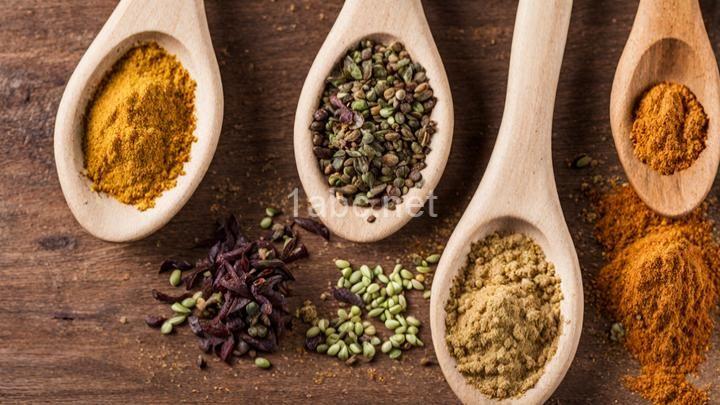Homemade vs Store-Bought: The Pros and Cons of Flavorful Seasonings

Introduction:
Welcome readers to this blog post where we will delve into the age-old debate between homemade and store-bought seasonings. We all know that seasonings play a crucial role in enhancing the flavors of our favorite dishes, but the question remains: should we take the time to make our own or simply rely on the convenience of store-bought options? In this friendly and casual discussion, we will explore the pros and cons of both approaches, helping you make an informed decision that suits your taste buds and lifestyle.
I. Definition of Flavorful Seasonings:
Before we dive into the debate, let's take a moment to define what we mean by flavorful seasonings. These encompass a wide array of ingredients such as herbs, spices, and blends that add depth and complexity to our culinary creations. Whether it's the aromatic fragrance of freshly ground black pepper or the warmth of a homemade curry powder, seasonings are the secret ingredients that transform a regular dish into a culinary masterpiece. It's important to note that both homemade and store-bought options can provide delicious flavors, so let's explore the pros and cons of each.
II. Pros of Homemade Seasonings:
There's something truly special about crafting your own seasonings in the comfort of your own kitchen. Here are a few advantages of making your own:
Freshness: One of the biggest advantages of homemade seasonings is the control you have over the quality of ingredients. By choosing fresh herbs and spices, you can ensure that your seasonings are bursting with flavor. Unlike store-bought options that may have been sitting on the shelves for months, your homemade blends will be packed with vibrant and fragrant goodness.
Customization: Another great aspect of making your own seasonings is the ability to customize flavors to suit your preferences. Don't enjoy the heat of chili powder? No problem! You can simply adjust the ratio or swap it out for a milder option. Homemade seasonings allow you to be the master creator, tailoring each blend to your taste buds' desires.
Health Benefits: When you make your own seasonings, you have greater control over the ingredients you use. This means you can avoid unnecessary additives, preservatives, and excess salt that are commonly found in store-bought alternatives. By choosing homemade, you can ensure that your seasonings are not only flavorful but also healthier for you and your loved ones.
III. Cons of Homemade Seasonings:
While homemade seasonings offer numerous advantages, it's important to acknowledge the potential downsides as well:
Time-consuming: Let's face it, crafting homemade seasonings can be a time-consuming endeavor. It requires gathering the necessary ingredients, measuring, grinding, and mixing them together. If you're someone with a busy schedule, the convenience of store-bought options may be more appealing.
Availability: Another challenge with homemade seasonings is the availability of certain ingredients. Depending on your location or the time of year, you may struggle to find some unique spices or herbs required for specific seasoning recipes. This limitation can hinder your creative exploration and force you to rely on store-bought alternatives.
IV. Pros of Store-Bought Seasonings:
Store-bought seasonings have long been a staple in many kitchens, and for good reason. Here are a few advantages of opting for ready-made options:
Convenience: The biggest advantage of store-bought seasonings is undoubtedly the convenience they offer. With a wide range of options readily available in supermarkets and online stores, you can save time and effort in your food preparation. Simply grab a bottle off the shelf, and you're ready to add flavor to your dishes without any extra hassle.
Variety: Another perk of store-bought seasonings is the vast array of flavors at your fingertips. From classic blends like Italian seasoning to exotic spice mixes from around the world, the possibilities are endless. Store-bought options allow you to experiment with different flavors and cuisines without the need to gather a multitude of individual ingredients.
V. Cons of Store-Bought Seasonings:
Just like any other convenience, there are a few drawbacks associated with store-bought seasonings:
Quality Control: One potential downside of store-bought seasonings is the lack of control over the quality of ingredients. Some pre-packaged options may contain additives, fillers, or lower-quality spices. While reputable brands strive to maintain high standards, it's important to read labels and choose products that align with your preferences and values.
Less Customization: While store-bought seasonings offer a wide variety, they may not provide the same level of customization as homemade blends. If you have specific taste preferences or dietary restrictions, you may find it challenging to find the perfect store-bought option that suits your needs. In such cases, making your own seasonings might be the better choice.
VI. Conclusion:
In conclusion, the choice between homemade and store-bought seasonings ultimately comes down to your priorities. If you value freshness, customization, and the health benefits of homemade options, then investing time and effort into crafting your own blends may be the way to go. On the other hand, if convenience, variety, and time-saving are more important to you, store-bought seasonings can be a great solution.
Remember, there is no right or wrong answer in this debate. It's all about finding what works best for you and your culinary adventures. So, whether you're grinding your own spices or reaching for that trusty bottle from the store, let's spice up our lives and create delicious dishes that tantalize our taste buds.
We would love to hear your experiences and thoughts on this topic. Feel free to share your own seasoning stories and preferences in the comments section below. Happy seasoning!
FREQUENTLY ASKED QUESTIONS
What is the difference between homemade and store-bought seasonings?
Homemade and store-bought seasonings have some key differences. Homemade seasonings are made from scratch using individual spices and herbs, allowing you to have complete control over the flavors and ingredients. You can customize homemade seasonings to suit your taste preferences and dietary needs, making them a great option for those with specific dietary restrictions or allergies.On the other hand, store-bought seasonings are pre-packaged blends that are convenient and readily available. They offer a quick and easy solution for adding flavor to your dishes without the hassle of gathering and measuring individual spices. Store-bought seasonings often come in a wide variety of flavors and cuisines, allowing you to explore different taste profiles without the need for extensive spice collections.
One advantage of homemade seasonings is the freshness and quality of the ingredients. Since you are using individual spices and herbs, you have more control over their freshness and can ensure that you are using high-quality ingredients. This can enhance the overall flavor of your dishes.
Store-bought seasonings, on the other hand, have the advantage of convenience. They are pre-mixed and pre-measured, saving you time and effort in the kitchen. They are also easily accessible, especially if you don't have a wide range of spices readily available.
When it comes to taste, homemade seasonings often have a more vibrant and pronounced flavor compared to their store-bought counterparts. Since you are using fresh ingredients and can adjust the ratios to your liking, homemade seasonings can provide a more personalized and intense taste experience.
Store-bought seasonings, while convenient, may contain additives, preservatives, or fillers to extend their shelf life. These additives can sometimes affect the taste and quality of the seasoning.
In summary, the main differences between homemade and store-bought seasonings lie in the level of control, freshness, convenience, and taste. Homemade seasonings offer customization, freshness, and a more pronounced flavor, while store-bought seasonings provide convenience and a wide variety of flavors to choose from. Ultimately, the choice between the two depends on your personal preferences, dietary needs, and the time you are willing to invest in the kitchen.
Are homemade seasonings healthier than store-bought ones?
When it comes to the health aspect of homemade seasonings versus store-bought ones, there are a few factors to consider. While both options can be used to enhance the flavors of your dishes, homemade seasonings generally have the advantage of being more customizable and free from additives and preservatives commonly found in store-bought ones.By making your own seasonings at home, you have control over the ingredients you use. This means you can choose to use fresh herbs and spices, which are rich in nutrients and can provide additional health benefits. Additionally, you can adjust the amount of salt and sugar to suit your preferences and dietary needs.
On the other hand, many store-bought seasonings often contain fillers, artificial flavors, and excessive amounts of sodium and sugar. These additives may not be as beneficial for your health and can contribute to issues such as high blood pressure or weight gain when consumed in excess.
It's important to note that not all store-bought seasonings are unhealthy, and there are some options available that are made with minimal additives and preservatives. Reading the ingredient labels and choosing products that are made with natural and recognizable ingredients can be a good alternative if you prefer the convenience of store-bought seasonings.
Ultimately, the choice between homemade and store-bought seasonings depends on your personal preferences and priorities. Homemade seasonings offer more control over ingredients and can be a healthier option, but store-bought options can still be enjoyed in moderation by choosing those with minimal additives.
Are homemade seasonings more flavorful?
Homemade seasonings can indeed be more flavorful compared to store-bought options. When you make your own seasonings at home, you have the freedom to customize the flavors and adjust the ingredients to suit your taste preferences. This allows you to experiment with different combinations and create unique blends that are bursting with flavor.One advantage of homemade seasonings is the use of fresh ingredients. When you make your own seasonings, you have the option to use fresh herbs, spices, and other ingredients. Fresh ingredients tend to have a more vibrant and intense flavor compared to their dried counterparts found in store-bought seasonings.
Additionally, homemade seasonings give you the opportunity to control the quality of ingredients. You can choose to use organic or high-quality spices and herbs, ensuring that you are getting the best flavors in your dishes. This level of control over the ingredients can greatly enhance the overall taste of your meals.
Another benefit of homemade seasonings is the absence of additives and preservatives. Many store-bought seasonings contain additives like MSG, artificial flavors, and preservatives to extend their shelf life. By making your own seasonings, you can avoid these additives, resulting in a more natural and pure flavor profile.
Furthermore, the act of creating your own seasonings can be a fun and rewarding experience. It allows you to be creative in the kitchen and tailor the flavors to your liking. You can experiment with different combinations, adjust the spice levels, and even incorporate unique ingredients to add an extra flair to your dishes.
While store-bought seasonings can be convenient, homemade seasonings offer a level of customization and freshness that can elevate the flavor of your meals. So why not give it a try and embark on a flavorful culinary adventure right in your own kitchen?
Is it difficult to make homemade seasonings?
Making homemade seasonings can be a fun and rewarding experience. While it may seem daunting at first, it's actually quite simple once you understand the basic techniques. With a few key ingredients and some creativity, you can create your own unique blends that will add flavor and depth to your dishes.One of the great things about making homemade seasonings is that you have control over the ingredients and can customize them to suit your taste preferences. Whether you prefer a spicy kick or a more mild flavor, you can adjust the seasonings accordingly. Plus, you can experiment with different herbs, spices, and even dried fruits or vegetables to create truly one-of-a-kind blends.
To make homemade seasonings, you'll need a variety of spices and herbs such as garlic powder, onion powder, paprika, cumin, oregano, and thyme. You can also add salt, pepper, and sugar to balance the flavors. Simply mix the desired amounts of each ingredient together, and voila! You have your own homemade seasoning blend. You can store them in airtight containers and use them whenever you need to add a burst of flavor to your dishes.
While making homemade seasonings does require some time and effort, it's definitely worth it. Not only will you have the satisfaction of creating something from scratch, but you'll also have full control over the quality and freshness of the ingredients. So go ahead and give it a try - you might just discover a new favorite seasoning blend that will elevate your cooking to the next level!



